The average cost of IVF (In Vitro Fertilization) in Israel starts from ILS 30400 (USD 8000)
Many couples are now facing issues in getting pregnant. These issues may be for a very wide variety of reasons; it could be any family’s genetic problems, it could be because of long term exposure to some dangerous chemicals and so on and so forth. But there is a way that the chances of getting pregnant for women can be increased, one such way is to get the IVF Treatment in Israel. In order to know how this treatment can increase the chances of women getting pregnant, we should first understand how IVF actually works. IVF is an acronym for the In Vitro Fertilization procedure. The name is derived from the words "in vitro" which in English translate to the phrase "in the glass." It is referred to as such because of the way that it is carried out. The babies that have been conceived by this procedure are known as test tube babies. It is a pretty much simple procedure.
| Country | Cost | Local_currency |
|---|---|---|
| Greece | USD 4540 | Greece 4177 |
| India | USD 3200 | India 266080 |
| Israel | USD 8000 | Israel 30400 |
| Lithuania | USD 4200 | Lithuania 3864 |
| Malaysia | USD 5000 | Malaysia 23550 |
| Morocco | USD 3000 | Morocco 30120 |
| Spain | USD 6840 | Spain 6293 |
| Thailand | USD 8000 | Thailand 285200 |
| Tunisia | USD 6000 | Tunisia 18660 |
| Turkey | USD 3510 | Turkey 105791 |
| United Arab Emirates | USD 7000 | United Arab Emirates 25690 |
Treatment cost

MediGence is offering immense facilities for your medical journey such as:
We offer packages at reasonable pricing that include a variety of additional advantages, making it a better deal than paying for individual perks at the hospital. In Vitro means Outside the Body. It is a process of egg fertilization with the sperm outside the body in an embryology laboratory. The process allowed many successful pregnancies in women who were previously deemed infertile. The procedure of IVF involves removal of eggs directly from the ovary, then the eggs are fertilized with sperm in the laboratory, followed by transfer of the embryos directly into the uterus, thereby bypassing the tubes., Grab this comprehensive & discounted package on IVF at Fortis Hospital, Shalimar Bagh, India.
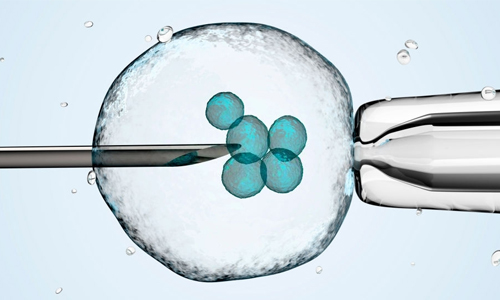
We provide numerous services for your medical journey, including:
We provide packages at economical prices with a number of additional benefits which make it a better opportunity than spending actual hospital costs with singular benefits. In Vitro means Outside the Body. It is a process of egg fertilization with the sperm outside the body in an embryology laboratory. The process allowed many successful pregnancies in women who were previously deemed infertile. The procedure of IVF involves the removal of eggs directly from the ovary, then the eggs are fertilized with sperm in the laboratory, followed by the transfer of the embryos directly into the uterus, thereby bypassing the tubes., Grab this comprehensive & discounted package on IVF at Max Super Specialty Hospital, Vaishali, India.

Apart from in-detail treatment procedures available, Herzliya Medical Center located in Herzliya, Israel has a wide variety of facilities available for International Patients. Some of the facilities which are provided by them are Accommodation, Airport Transfer, Interpreter, SIM, TV inside room. Also listed below are some of the most prominent infrastructural details:
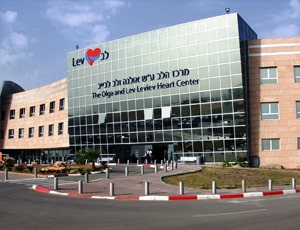
Sheba Medical Center located in Tel-Hashomer, Israel is accredited by JCI. Also listed below are some of the most prominent infrastructural details:
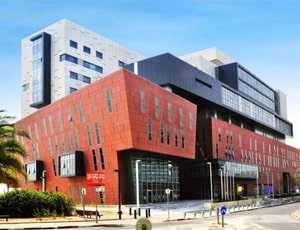
Assuta Hospital located in Tel-Aviv, Israel is accredited by JCI. Also listed below are some of the most prominent infrastructural details:

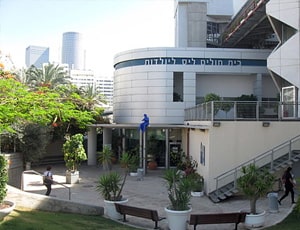
Lis Maternity & Women's Hospital located in Tel-Aviv, Israel is accredited by JCI. Also listed below are some of the most prominent infrastructural details:
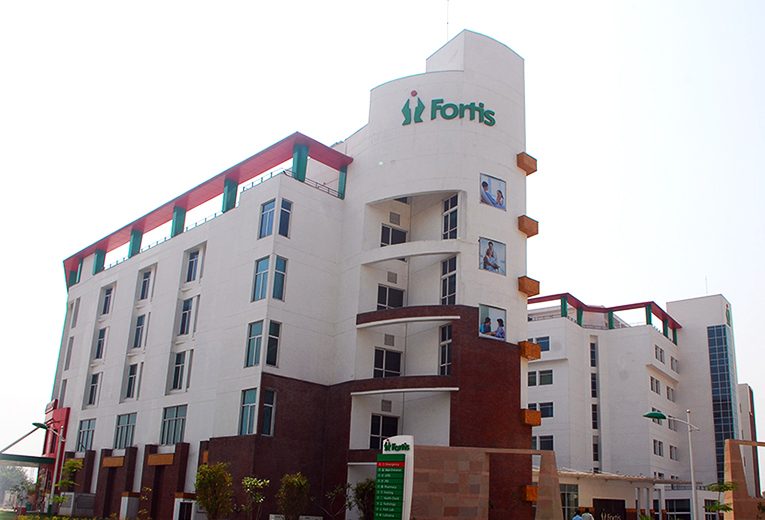
The cost for IVF (In Vitro Fertilization) ranges from USD 5350 - 6140 in Fortis Hospital, Shalimar Bagh
Fortis Hospital, Shalimar Bagh is a super-speciality hospital which occupies a unique place when it comes to providing world class patient care. The hospital is equipped with 262 beds and is expanded over a total area of 7.34 acres. It provides the highest quality of medical care via its team of doctors, technicians, nurses, and management professionals.
Infrastructure & facilities:
DOCTORS IN 14 SPECIALITIES
FACILITIES & AMENITIES
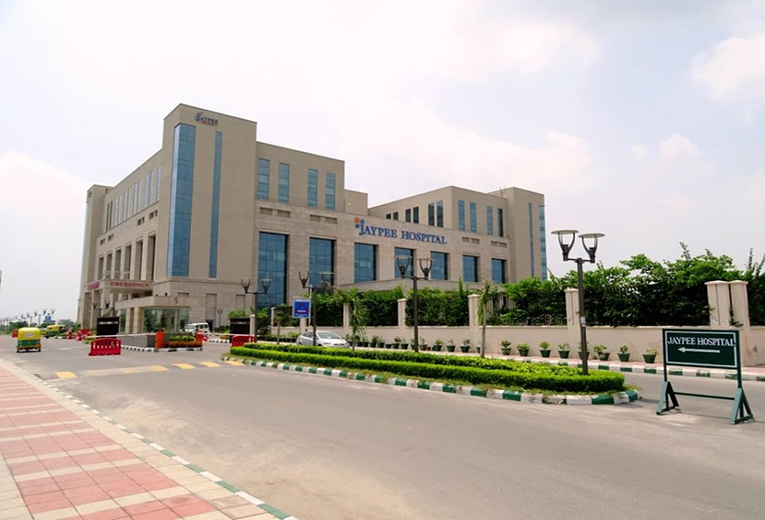
The cost for IVF (In Vitro Fertilization) ranges from USD 4580 - 4660 in Jaypee Hospital
Jaypee Hospital located in Noida, India is accredited by ISO, NABH, NABL. Also listed below are some of the most prominent infrastructural details:
DOCTORS IN 14 SPECIALITIES
FACILITIES & AMENITIES

Mount Elizabeth Novena Hospital located in Novena, Singapore is accredited by JCI. Also listed below are some of the most prominent infrastructural details:
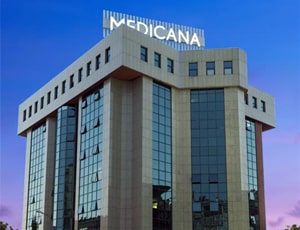
Types of IVF (In Vitro Fertilization) in Medicana Camlica Hospital and its associated cost
| Treatment Option | Approximate Cost Range (USD) | Approximate Cost Range (TRY) |
|---|---|---|
| Overall IVF Cost | 3382 - 5516 | 100369 - 165897 |
| Conventional IVF | 2290 - 4447 | 67315 - 133395 |
| Intracytoplasmic Sperm Injection (ICSI) IVF | 3398 - 5656 | 103527 - 169207 |
DOCTORS IN 14 SPECIALITIES
FACILITIES & AMENITIES
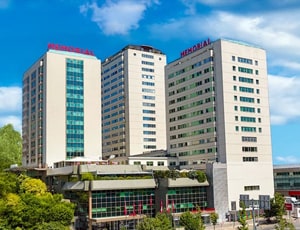
Types of IVF (In Vitro Fertilization) in Memorial Sisli Hospital and its associated cost
| Treatment Option | Approximate Cost Range (USD) | Approximate Cost Range (TRY) |
|---|---|---|
| Overall IVF Cost | 3369 - 5595 | 102057 - 168158 |
| Conventional IVF | 2244 - 4556 | 67517 - 134869 |
| Intracytoplasmic Sperm Injection (ICSI) IVF | 3353 - 5515 | 101381 - 166407 |
DOCTORS IN 13 SPECIALITIES
FACILITIES & AMENITIES

Types of IVF (In Vitro Fertilization) in Memorial Ankara Hospital and its associated cost
| Treatment Option | Approximate Cost Range (USD) | Approximate Cost Range (TRY) |
|---|---|---|
| Overall IVF Cost | 3337 - 5534 | 102498 - 169365 |
| Conventional IVF | 2209 - 4440 | 67387 - 132958 |
| Intracytoplasmic Sperm Injection (ICSI) IVF | 3394 - 5662 | 102311 - 168926 |
DOCTORS IN 12 SPECIALITIES
FACILITIES & AMENITIES
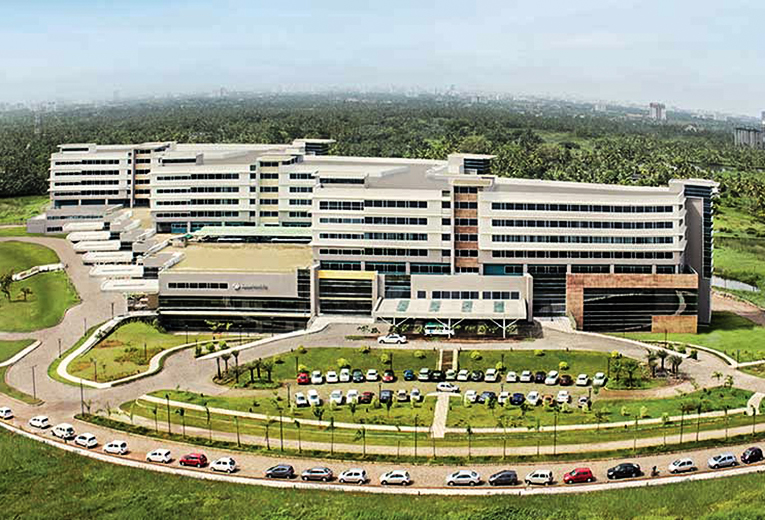
Types of IVF (In Vitro Fertilization) in Aster Medcity and its associated cost
| Treatment Option | Approximate Cost Range (USD) | Approximate Cost Range (INR) |
|---|---|---|
| Overall IVF Cost | 2038 - 5057 | 167014 - 417252 |
| Conventional IVF | 2025 - 4079 | 166014 - 334442 |
| Intracytoplasmic Sperm Injection (ICSI) IVF | 3039 - 5071 | 250841 - 414907 |
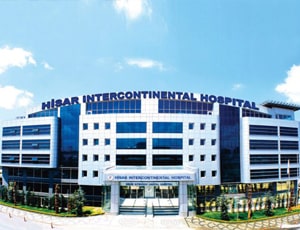
Types of IVF (In Vitro Fertilization) in Hisar Intercontinental Hospital and its associated cost
| Treatment Option | Approximate Cost Range (USD) | Approximate Cost Range (TRY) |
|---|---|---|
| Overall IVF Cost | 3311 - 5544 | 100021 - 172019 |
| Conventional IVF | 2254 - 4411 | 67842 - 134848 |
| Intracytoplasmic Sperm Injection (ICSI) IVF | 3398 - 5722 | 102615 - 165885 |
DOCTORS IN 12 SPECIALITIES
FACILITIES & AMENITIES
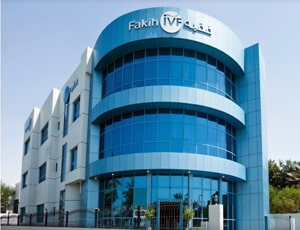
Types of IVF (In Vitro Fertilization) in Fakih IVF Fertility Center and its associated cost
| Treatment Option | Approximate Cost Range (USD) | Approximate Cost Range (AED) |
|---|---|---|
| Overall IVF Cost | 7752 - 11736 | 29042 - 43119 |
| Conventional IVF | 6790 - 9940 | 24267 - 36547 |
| Intracytoplasmic Sperm Injection (ICSI) IVF | 7994 - 11801 | 28433 - 44115 |
DOCTORS IN 2 SPECIALITIES
FACILITIES & AMENITIES
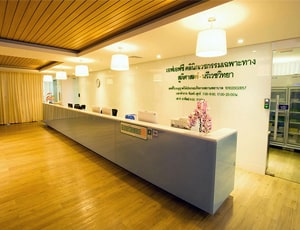
First Fertility Center located in Phnom Penh, Cambodia is accredited by JCI. Also listed below are some of the most prominent infrastructural details:
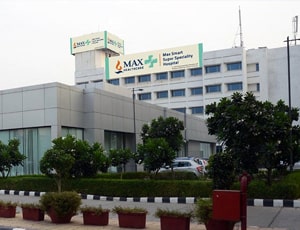
Types of IVF (In Vitro Fertilization) in Max Smart Super Speciality Hospital and its associated cost
| Treatment Option | Approximate Cost Range (USD) | Approximate Cost Range (INR) |
|---|---|---|
| Overall IVF Cost | 2035 - 5092 | 166338 - 417369 |
| Conventional IVF | 2033 - 4074 | 166752 - 333201 |
| Intracytoplasmic Sperm Injection (ICSI) IVF | 3050 - 5097 | 249137 - 417568 |
DOCTORS IN 12 SPECIALITIES
FACILITIES & AMENITIES
The natural process of fertilization involves the conjugation of an egg and sperm inside the woman’s body. In-vitro-fertilization (IVF) is the procedure that involves the conception of an egg outside the body in a laboratory. IVF comes under assisted reproductive technology (ART) that involves the use of advanced medical technology to help with pregnancy in the woman.
The different types of treatments available for IVF are:
Assisted hatching is a technique used in IVF where a gap or a hole is created on the outer shell of the embryo called zona pellucida before transferring the embryo into the mother’s womb. Before the implantation of the embryo, the developing embryo should “hatch” out of its outer shell (zona pellucida).
Sometimes the embryo is thick, which decreases its ability to hatch on its own. Making a hole or thinning the outer layer may help the embryos to hatch, which increases the chances of pregnancy. Pregnancy cannot occur unless the embryo hatches. Thus, assisted hatching IVF success rates are higher than simple IVF success rates.
Because of the use of additional technology, IVF with laser assisted hatching cost is higher than just IVF cost.
IVF with laser assisted hatching is recommended when:
It is performed by using
It is performed before transferring the embryo into the mother’s womb on day 3, 5, or 6 after fertilization. An opening in the zona pellucida is created by drilling it with acidified tyrode’s solution.
The embryo is held firmly using holding pipette and a microneedle is applied
The acid is expelled over a small area of zona pellucida until it is breached. Suction is applied immediately after the breach of zona pellucida to prevent excess
This procedure Is exactly the same as the usual IVF procedure with a difference that the egg used for fertilization comes from a different candidate than the one undergoing IVF. This procedure involves a process known as female egg donation in which a suitable candidate donates an egg for successful fertilization with the retrieved sperms.
The egg donation procedure is similar to how the eggs are retrieved from the womb of the future mother. The only difference is that during
IVF with egg donation is mostly performed in the case of women who have
Intracytoplasmatic sperm injection (ICSI) is an IVF variation in which the sperm is directly injected into the egg for fertilization. The resulting fertilized egg is placed in
ICSI procedure does not require the sperm to penetrate the layers of the egg. It is highly useful to treat infertility problems in couples who suffer because the male partner’s sperms are either not able to get into the egg or are unable to fertilize the egg even when they are able to get through it.
During IVF with ICSI procedure, the eggs are extracted and held in one place with the help of a glass tool. A single sperm is injected into each egg using a small glass tube. The eggs are cultured and checked for fertilization overnight. The fully fertilized eggs are selected. A few fertilized eggs selected are placed in the uterus with the help of a catheter. The leftover embryos are preserved for future use.
While in simple IVF, the eggs and sperms are mixed together and allowed to fertilize naturally, in ICSI, a sperm is forced into the sperm for fertilization.
ICSI success rates largely
IVF with ICSI is also performed when the sperms come from a suitable donor and not from the male partner of the female undergoing IVF procedure. ICSI IVF treatment is the same when conducted with donor sperms as it is with sperms that come from the male partner.
ICSI treatment involves the injection of a single sperm directly into the egg from the female partner or a donor. In the case of ICSI with donor sperms, a semen sample from a suitable donor is retrieved. The sperm sample is processed and viable and good quality sperms are extracted from for further procedure.
Next, the entire ICSI procedure is conducted in a similar manner. ICSI success rates are the same whether the sperm comes from a donor or the actual male partner. ICSI treatment cost is separate from the cost of IVF.
Optical spindle view is a specialized technique used at the time of IVF and ICSI. This technique helps the fertility specialists view the division of cells carefully to ensure that the entire process goes on smoothly.
The optical spindle view technique is used after the fusion of the eggs and the sperms
Sometimes during IVF and ICSI, the fertility specialist may order a testicular biopsy to assess testicular function in the male partner before using his sperms. During
Step 1: Over-stimulation of ovulation
Stimulation of the ovaries occurs with the administration of fertility drugs. The natural process involves the production of one egg per month, but the fertility drugs hyperstimulate the ovaries to produce more number of drugs.
Step 2: Retrieval of eggs
Removal of the eggs from the woman’s body is done through a minor surgery called follicular aspiration surgery. Pain medications are given to the woman and with the help of ultrasound, a thin needle attached to the suction pump is inserted into the vagina. The needle is directed towards the follicles containing eggs and suctions the fluid and the eggs.
Step 3: Insemination
The inactive cells from the semen are removed. The ovum and the sperms are incubated in the ratio of 1:75,000.
Step 4: Fertilization
The sperm enters the egg and fertilization takes place. If the sperm is found to be weak, then Intra-cytoplasmic sperm injection (ICSI) is performed which involves direct injection of sperm into the ovum.
Step 6: Culture of the embryo
After fertilization, the egg divides forming an embryo. The embryo rapidly divides within five days after fertilization.
Genetic diagnosis is performed after 3-4 days of fertilization to rule out the genetic disorders.
Step7: Transfer of the embryo
The embryos are transferred into the mother’s womb after 3-5 days of fertilization. This transfer is done with the help of a thin tube containing embryos. The tube is inserted through the vagina, cervix, and to the womb. Pregnancy is resulted if the embryo starts growing.
If you have experience symptoms such as fever, pelvic pain, bleeding, and blood in urine, consult your physician immediately.
Ask your healthcare adviser for the best multiple options and choose the one that meets your expectations
On an average, IVF (In Vitro Fertilization) in Israel costs about USD$ 8000. IVF (In Vitro Fertilization) in Israel is available across many hospitals in different states.
Different hospitals have different pricing policy when it comes to the cost of IVF (In Vitro Fertilization) in Israel. The top hospitals for IVF (In Vitro Fertilization) in Israel covers all the expenses related to the pre-surgery investigations of the candidate. The comprehensive IVF (In Vitro Fertilization) package cost includes the cost of investigations, surgery, medicines and consumables. A prolonged hospital stay due to delayed recovery, new diagnosis and complications after surgery may increase the cost of IVF (In Vitro Fertilization) in Israel.
There are several best hospitals for IVF (In Vitro Fertilization) in Israel. Some of the most renowned hospitals for IVF (In Vitro Fertilization) in Israel include the following:
Upon discharge from the hospital after IVF (In Vitro Fertilization) in Israel, the patients are advised to stay for about 30 days for recovery. This period is important to conduct all the follow-up tests to ensure that the surgery was successful and the patient can go back to the home country.
Israel is considered to be one of the best places for IVF (In Vitro Fertilization) in the world. This is because of the availability of some of the best doctors, advanced medical technology and good hospital infrastructure. However, some of the other popular destinations for IVF (In Vitro Fertilization) include the following:
Apart from the cost of IVF (In Vitro Fertilization), the patient is also required to pay additionally for daily meals and guest house accommodation. These charges may vary starting from USD$ 75 per person.
Some of the popular cities in Israel that offer IVF (In Vitro Fertilization) include the following:
The patient has to spend about 1 days in the hospital after IVF (In Vitro Fertilization) for proper recovery and to get clearance for discharge. The patient is subjected to several biochemistry and radiological scans to see that everything is okay and the recovery is on track. After making sure that patient is clinically stable, discharge is planned.
There are about 4 IVF (In Vitro Fertilization) hospitals in Israel that are best known for their services. Apart from good services, the hospitals are known to follow all standard and legal guidelines as dictated by the local medical affairs body or organization.
The average cost of IVF in Israel will mostly depend on how many times you might have to have the IVF procedure done. But, never the less, average cost of IVF in Israel for each cycle of the IVF treatment could range between (USD 6000-USD 7000) six thousand dollars to about seven thousand dollars. This is still very less than when compared to the United States of America.
IVF success rate in Israel is very high compared to many other countries in the same region. This can be because of the fact that the medical facilities in Israel are much better than many other countries in the vicinity of Israel.
Some of the best IVF clinic in Israel include:
Herzliya Medical Center – This is one of the oldest hospitals in Israel with a dedicated IVF treatment place. It is a private hospital which was opened in the year of 1987. The facilities here are state of the art and are better than many other hospitals in other surrounding countries. It is located in the city of Herzliya in Israel.
IVF Clinic – Elisha Hospital – This is another very popular place for IVF treatments in Israel. They have very modern medical equipment as well as very good staff as well as good doctors on call that can assist you with all your needs. They have served hundreds of overseas patients and are well aware of the problems that foreigners can face in Israel. It is located in the city of Haifa.
Hadassah medical center – This is again a very old medical center that is present in Israel, located in Jerusalem; they see many foreign patients for treatment. Not only limited to IVF, but they also have very specialized doctors for various other wings of medicine as well. The staff are top-ranked and are very caring. All of the professions that work here are certified and have their background verified.